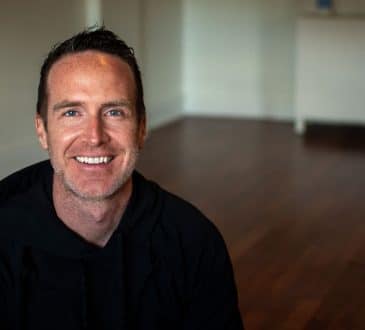Changing Neural Pathways and Fixed Thinking: When Confronted by Negativity in Life or Work

Negative emotions are an inevitable part of the human experience, emerging in both our personal lives and professional environments. Whether sparked by a challenging project at work, a new role, a disagreement with a colleague, a promotion, or personal setbacks, these emotions can significantly impact our mental health and productivity.
Learning to navigate and manage these feelings is crucial for maintaining emotional balance, and fostering resilience. By understanding the root causes of our negative emotions and employing effective coping strategies, we can transform our reactions and cultivate a more positive and constructive mindset. For those newly promoted or joining new companies in leadership positions, it is important to ensure that surfacing what you are feeling is as important a data set as any other, to ensure that you are leading in the most effect and impactful way that you can.
Whatever the context, do be conscious of any emotion and especially any negativity that you may be feeling. This could be nervousness, imposter syndrome, or concern about potential conflict. This is all entirely natural, but taking these negative emotions into your new role, without reflection, is likely to make you view every moment through the lens of these.
Start to isolate and address all of these emotions or feelings early. Try to identify and discern the reasons why you are feeling what you are feeling. If newly promoted, you may need to be cognizant of these new inputs and the effects they may have in a way you never had to consider before. Ignoring and pushing on is not a recipe for helping to grow your leadership capability.
Negative Emotions
We can all be our own worst critics, so check on your confidence levels and especially how unkind you are being to yourself. Remember, the stories we tell ourselves are a way of programming the mind. Sometimes, we need to reprogram ourselves to break engrained, embedded neutral pathways and ways of thinking. So, start with your values and understanding what got you here. Once you have done this, focus on your vision, mission, and goals and start to lean into some positive, more confident thoughts.
A very common phenomenon in taking on a promotion or new role is the feeling of suddenly being less expert. In these situations, I would advise you to quickly become comfortable in what you don’t know, remember, you were hired for what you do know. There will come pressures for sure; some folks will expect you to fix all their product issues, while others may even use a lack of expertise in industry terms to undermine you. None of this truly matters when you can help to transform an organization through its people and focuses. This is where you should
focus your mind and your priorities. This is the greatest impact you can bring. There will be plenty of experts in the business and you will learn over time.
This can be challenging, especially if your industry is complex, and you are unsure of where to start in your new role. This desire to get going can push inner reflection aside all too easily. Just as you will focus on gathering data on your business and its performance, so that you can identify priorities and undertake planning, ensure that you make yourself a part of this research.
It is all too easy not to prioritize yourself, and you must recognize that it is entirely on you to focus on managing yourself on your journey, and to carve out the precious time to build the inputs that you can shape into a confident narrative to back yourself. Consider then, that your currently experienced emotions are just another of these data sets to gather and explore.
Adopting a Growth Mindset
Embarking on personal and professional growth often involves deliberate placing of oneself into uncomfortable situations. This concept is rooted in the idea that stepping outside of one’s comfort zone is fostering learning, resilience, and adaptability. Investigating your emotions and fears might be uncomfortable but consider them an opportunity to grow and enhance your leadership capability.
When individuals purposefully expose themselves to challenges or unfamiliar territories, including internal reflection, they confront new perspectives, skills, and experiences that contribute to their overall development. It’s about recognizing that true growth often lies just beyond the boundaries of familiarity and complacency, encouraging individuals to embrace challenges as stepping stones toward becoming their best selves.
Changing Neural Pathways and Fixed Thinking
Changing ourselves can sometimes be the hardest thing to do but it is entirely possible, and being in situations beyond our comfort zone is something one should strongly embrace in order to challenge oneself, as it is now that you can truly learn and grow. It is worth it, because once done, you will have begun the process of breaking any triggered thinking or feedback loops that can happen in the moment of dealing with a person or situation.
Start by taking a moment to acknowledge the feelings you are experiencing and ask yourself in each case why they are there. Jot these down without immediately trying to find solutions; do not ignore them and do consider putting them through a positive forward-thinking structured exercise. An example framework exercise to undertake at this point would be to ask yourself some open questions:
- What am I feeling? (Lack of confidence, lack of expertise, imposter syndrome, not knowing where to focus, fear of conflict, etc.)
- What is the impact this emotion is having on me right now?
- Why am I feeling this way toward this situation or person or perceived weakness?
- What is the leadership shift I would like to make right now and why?
- How will I address these feelings the next time they arise?
- What is the one thing I could change to improve my performance?
By thinking about and answering these questions you are already putting anything negative you are feeling into a more positive light. Try to come up with a mission statement for yourself in response to this question. An example might be:
“I want to be better at navigating complexity and change. I want to use effective and clear communication, while working collaboratively and in comfort with conflict.”
This is a real example from my past. To create this, I was thinking about my position and the challenges I was facing real time at work in that moment. I was also at the time struggling with a key relationship with one of my colleagues. Your statement, therefore, should be honestly reflective of your own situation at any given time.
With a powerful mission or problem statement prepared, you can then review the journey you will need to make. This in turn can psychologically prepare you for the effort you will want to make to get to your destination. This is all in the context of you defining what it is you need to be to be able to win.
It is at this point that you can break down the components of the changes or actions you need to make into clear categories of where you are and where you would like to be. Examples could be mindset, behaviors, impact, and desired results. In terms of actions, these could be, for example, ask for training, ask for help, learn about a topic or a detail of your business or service, or to sit down and explore your working relationship with someone. Write these down somewhere and return to them as you evolve in your journey. Now, you can address those demons you have originally acknowledged and focus to work on thinking about the changes you will affect as you enter your new role.
Negative emotions are a natural part of transitioning into new roles or tackling challenging projects, but they need not be a hindrance. By recognizing and addressing these feelings early, you can transform them into valuable insights that enhance your leadership capability. Embracing a growth mindset and being proactive about self-reflection allows you to navigate complexity and change more effectively.
Remember, your emotions are an essential data set that can guide your development. Take the time to understand and manage them, and you’ll be better equipped to lead with confidence and resilience. Your journey toward effective leadership begins with this conscious effort to understand and harness your emotional landscape, turning potential obstacles into opportunities for growth and success.
Written by Richard Cogswell.
Have you read?
Best CEOs. Best Companies. Richest People (Billionaires). Richest Women (Billionaires). Richest in Each Country (Billionaires).
Bring the best of the CEOWORLD magazine's global journalism to audiences in the United States and around the world. - Add CEOWORLD magazine to your Google News feed.
Follow CEOWORLD magazine headlines on: Google News, LinkedIn, Twitter, and Facebook.
Copyright 2025 The CEOWORLD magazine. All rights reserved. This material (and any extract from it) must not be copied, redistributed or placed on any website, without CEOWORLD magazine' prior written consent. For media queries, please contact: info@ceoworld.biz








